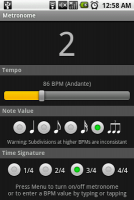search:present perfect progressive相關網頁資料
present perfect progressive的相關文章
present perfect progressive的相關公司資訊
present perfect progressive的相關商品
瀏覽:588
日期:2024-08-22
How do we make the Present Perfect Continuous Tense? The structure of the present perfect continuous tense is: subject, +, auxiliary verb, +, auxiliary verb, + ......
瀏覽:828
日期:2024-08-19
2011年5月5日 - 其實,Present Perfect和Present Perfect Continuous分別在於講者是否會在未來繼續所述的動作,以前文容易混淆的Tenses:Present Perfect VS ......
瀏覽:1244
日期:2024-08-21
Present Perfect Continuous. Exercises on Present Perfect Progressive. The present perfect progressive expresses an action that recently stopped or is still going ......
瀏覽:942
日期:2024-08-25
This tense is used to talk about an action or actions that started in the past and continued until recently or that continue into the future: We can use it to refer to an ......
瀏覽:653
日期:2024-08-19
The present perfect continuous is made up of two elements: the present perfect of the verb 'to be' (have/has been), and; the present participle of the main verb ......
瀏覽:1217
日期:2024-08-24
Present Perfect Progressive - Use. 1) Actions beginning in the past and still continuing (focus is on the action) - mostly with since (point of time) or for (period of ......
瀏覽:399
日期:2024-08-22
The PRESENT PERFECT PROGRESSIVE TENSE indicates a continuous action that has been finished at some point in the past or that was initiated in the past ......
瀏覽:1437
日期:2024-08-23
Present Perfect Simple, Present Perfect Progressive. irregular verbs: form of 'have' + 3rd column of irregular verbs. Example: I / you / we / they have spoken: he ......



![[程式分享]Hero上的外幣匯率查詢](https://www.iarticlesnet.com/pub/img/article/23102/1403928803719_s.png)



































